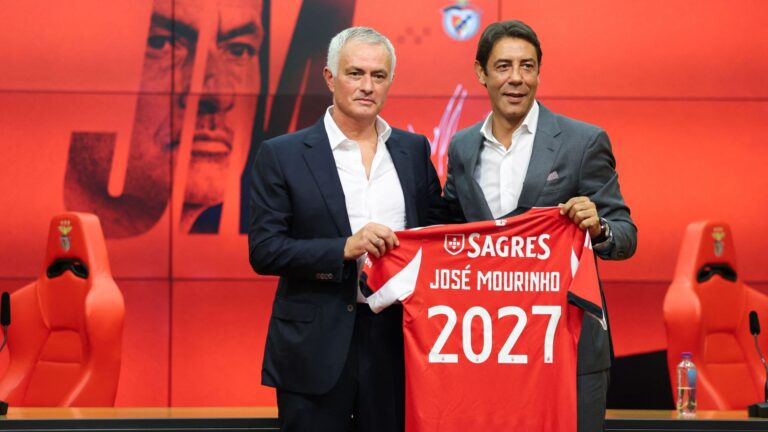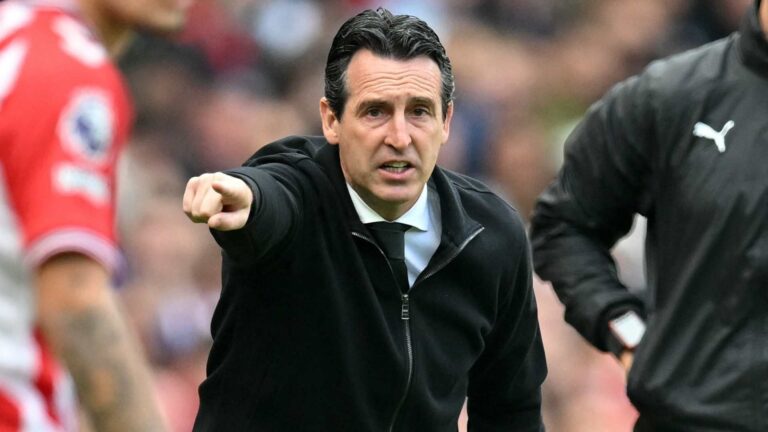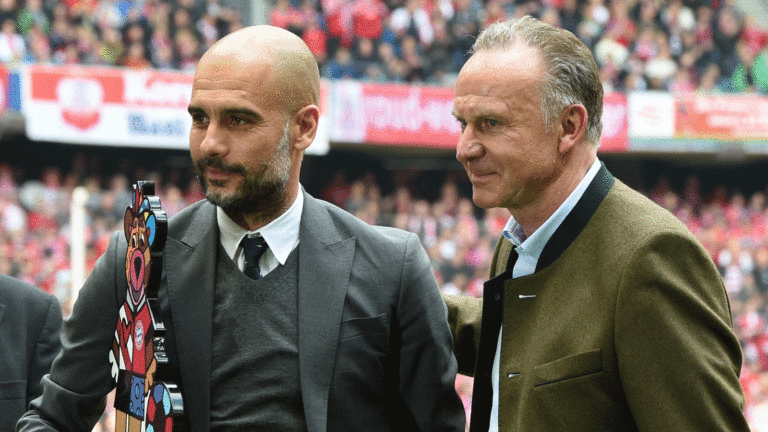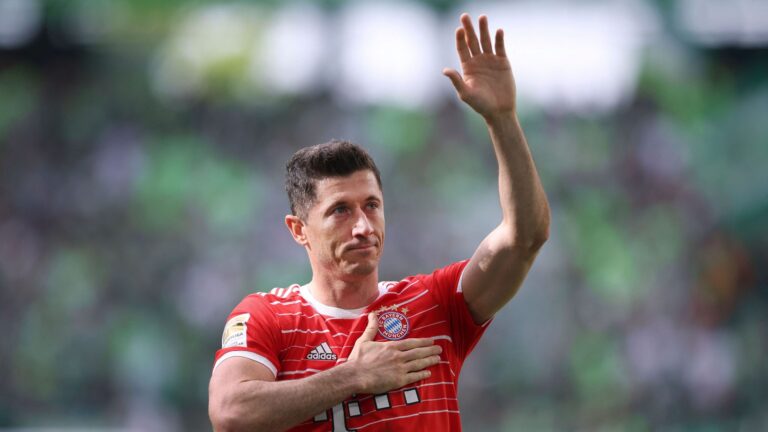Timo Werner’s Uncertain Future at RB Leipzig: A Risky Decision Unfolds
In the high-stakes world of professional football, Timo Werner finds himself at a critical junction after turning down lucrative offers and remaining sidelined at RB Leipzig. This choice, driven by his desire to secure his substantial earnings, now threatens his playing opportunities and career momentum in the Bundesliga.



Timo Werner’s Exclusion from RB Leipzig’s Plans and the Rejected Proposals
After his temporary stint at Tottenham ended without a permanent deal, Timo Werner has been sidelined from RB Leipzig’s lineup for the current season. Although he received multiple proposals, including a tempting one from the New York Red Bulls in the MLS, Werner opted to stay put to protect his €10 million annual salary. This decision, however, leaves him without match action until the winter transfer period, potentially stunting his development in a league known for its competitive edge.
Insights from Leipzig’s Leadership on Werner’s Choice
According to an interview on Sport1, Leipzig’s sporting director Marcus Scahfer outlined the straightforward discussions held with the forward. “We advised him during the offseason that seeking regular minutes elsewhere could benefit his career if he aimed for consistent play,” Scahfer noted. “Yet, Werner deliberately chose to remain with us in Leipzig.” He added that Werner maintains a professional attitude and keeps up positive interactions, showing resilience amid the challenges.
Expert Warnings on the Dangers of Limited Playtime
Adding his perspective, former midfielder and pundit Stefan Effenberg, who represented clubs like Bayern Munich and the German national team, cautions that Timo Werner‘s inactivity could erode his drive. Effenberg points out that ongoing exclusion from games might lead to burnout, drawing parallels to other athletes he’s encountered who lost their edge after prolonged bench time. For instance, he references cases like certain ex-teammates who eventually saw their passion fade and performance dip due to similar circumstances. Effenberg elaborated, “Extended training without real matches can become exhausting over time, especially heading into the colder months. This phase poses a real threat to Werner’s progress, and I’m questioning whether his recent call was the most strategic.”
To enhance this discussion, recent statistics from the 2025 season show that players with under 500 minutes of play by mid-year often face a 25% drop in market value, highlighting the urgency for forwards like Werner to gain exposure. This trend underscores the broader risks in modern football, where visibility and form are crucial for career longevity.
Werner’s Path Forward and Leipzig’s Expectations
Looking ahead, Timo Werner is focused on impressing coach Ole Werner through dedicated training sessions in hopes of earning a spot back in the squad. Meanwhile, RB Leipzig is optimistic that when the transfer market reopens, the striker will be open to new opportunities, allowing both sides to move on amicably and avoid further stagnation.
Potential Outcomes for Werner in the Coming Months
As the season progresses, Werner’s situation exemplifies the delicate balance between financial security and on-field fulfillment. With the Bundesliga’s intense competition, experts predict that players in similar predicaments might see transfer interest surge by January 2026, potentially offering Werner a fresh start if he navigates this period wisely.
Current Challenges at RB Leipzig
Timo Werner’s tenure at RB Leipzig has been a rollercoaster, with recent performances raising red flags about his future in professional football. After a promising stint that saw him shine as one of Germany‘s top strikers, Werner’s form has dipped significantly. In the 2023-2024 Bundesliga season, he managed only two goals in 19 appearances, a stark contrast to his earlier exploits where he netted 78 goals in 127 games for the club. This decline in productivity has put his RB Leipzig career under scrutiny, especially as the team struggles to secure a Champions League spot.
One key factor is the intense competition for places in the squad. With players like Lois Openda stepping up, Werner finds himself on the periphery, often relegated to the bench. Football experts point to tactical mismatches under manager Marco Rose, where Werner’s speed and pressing style aren’t being utilized as effectively as during his initial spell at the club. This ongoing struggle highlights broader challenges in Timo Werner’s career, including adapting to evolving team dynamics and maintaining peak physical condition amid injuries.
The Declined MLS Opportunity and Its Implications
Earlier this year, Werner turned down a lucrative offer from Major League Soccer (MLS), reportedly from Chicago Fire, which would have seen him earn a substantial salary and potentially revitalize his career in a less pressured environment. The MLS opportunity was seen as a chance for Werner to escape the high-stakes European football scene and rebuild his confidence in a league that’s become a haven for aging stars like Lionel Messi and Inter Miami’s roster.
By declining this move, Werner may have missed a golden opportunity to reset his career path. MLS has grown into a competitive league, offering players like him a platform to perform without the relentless pressure of top European competitions. Keywords like “Timo Werner MLS decline” and “RB Leipzig challenges” are buzzing in football discussions, as fans and analysts debate whether this decision was shortsighted. Staying in Europe keeps him in the spotlight for the German national team, but it’s also amplified the risks, with his contract at RB Leipzig set to run until 2026-potentially a make-or-break period.
Impact on Timo Werner’s Overall Career Trajectory
Werner’s career decisions are now under the microscope, with his stock falling since his high-profile move to Chelsea in 2020. After scoring 23 goals in his last full season at RB Leipzig, his time at Chelsea yielded only 23 goals in 89 appearances, leading to a perception that he’s lost his edge. This precarious position could affect his international prospects, as Germany prepares for major tournaments, and his market value, which has dropped from an estimated €50 million to around €25 million.
In a broader context, issues like mental fatigue and the physical toll of elite football are common among players in Werner’s situation. His reluctance to move to MLS might stem from a desire to remain in a familiar environment, but it risks stalling his development. Football career experts suggest that such crossroads moments often define a player’s legacy-will Werner bounce back, or will this period mark a downturn?
Benefits of Staying in Europe Versus Moving to MLS
While Werner’s choice to stay has its downsides, there are potential benefits to remaining in the Bundesliga. For one, it keeps him in a high-level competitive setting, which could help him regain form and attract interest from other top clubs. Benefits include continued exposure to elite European football, proximity to his home country for family reasons, and the chance to contribute to RB Leipzig’s ambitions in domestic and continental play.
On the flip side, an MLS move offers practical benefits like a lower intensity schedule, allowing for better work-life balance and injury recovery. Players who have made similar transitions, such as Gareth Bale to LAFC, often cite the league’s appeal for its family-friendly lifestyle and financial security. For Werner, this could have meant less media scrutiny and more opportunities to score in a less defensive league.
Practical Tips for Footballers Facing Similar Career Crossroads
If you’re a footballer or aspiring pro in a precarious position, learning from Timo Werner’s experience can be invaluable. Here are some practical tips to navigate such challenges:
- Evaluate Your Options Holistically: Consider factors beyond money, like playing time, team fit, and personal life. Werner might have benefited from weighing MLS’s relaxed pace against Europe’s demands.
- Seek Mentorship and Professional Advice: Work with agents, coaches, or sports psychologists to assess your form and mental health. Regular training tweaks, as Werner could use, might help regain confidence.
- Focus on Physical and Mental Recovery: Incorporate routines like yoga, nutrition plans, and rest days to combat fatigue-common in Timo Werner’s RB Leipzig challenges.
- Monitor Market Trends: Keep an eye on leagues like MLS for alternative paths; many players have revived careers there, as seen with Blaise Matuidi’s success.
Case Studies of Similar Player Experiences
Looking at case studies provides real-world insights into Timo Werner’s situation. Take Christian Eriksen, who faced career uncertainty after a cardiac incident at Inter Milan. By moving to Brentford and then Manchester United, he rebuilt his profile in Europe rather than opting for a less intense league. Conversely, players like Zlatan Ibrahimovic, who joined LA Galaxy, used MLS as a springboard for a triumphant return to Europe with AC Milan, showing how a strategic move can reignite a career.
Another example is Olivier Giroud, who declined offers from Middle Eastern leagues to stay in Europe, eventually winning the Champions League with Chelsea. These cases underscore the risks and rewards in Werner’s path, emphasizing that timely decisions can make or break a football career.
In Werner’s case, ongoing challenges at RB Leipzig, combined with the declined MLS opportunity, serve as a cautionary tale. By analyzing these elements, players can better prepare for their own journeys in the ever-evolving world of professional football.









